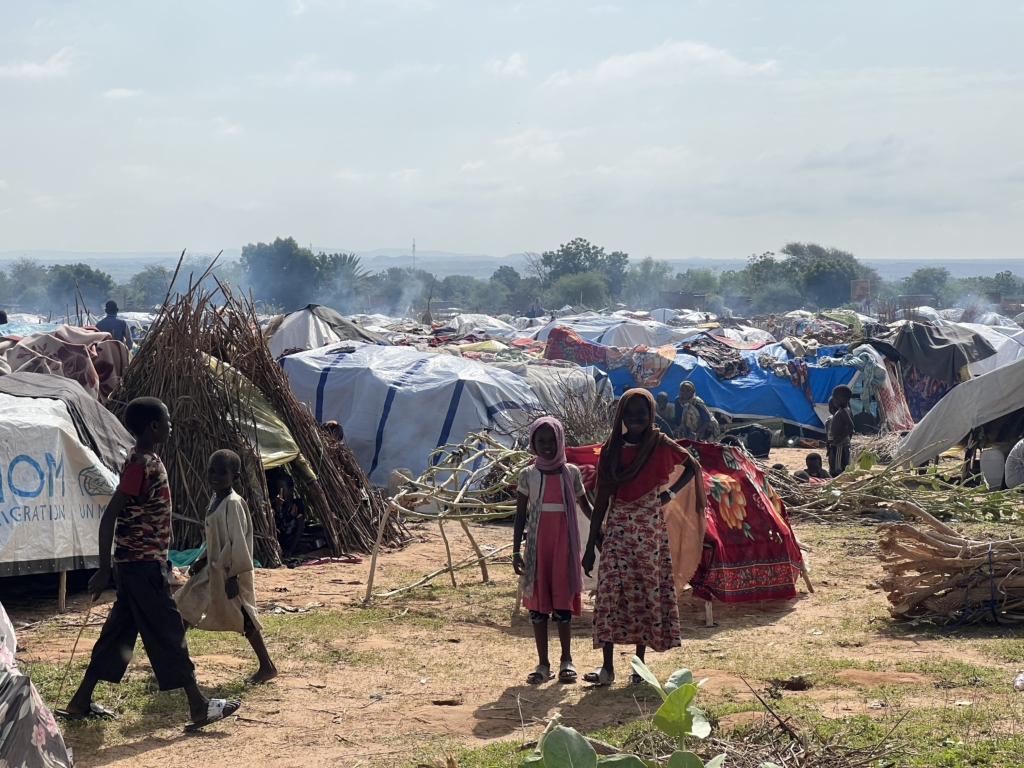Khartoum, October 12(Darfur 24) The United Nations High Commissioner for Refugees UNHCR said that the displacement crisis caused by the conflict in Sudan continues unabated, with nearly 6 million people forced to leave their homes, with women and children making up nearly 90% of the displaced.
Mamadou Diagne Balde, Director of UNHCR’s Regional Office for East Africa, the Horn of Africa and the Great Lakes, said that the situation in Sudan constitutes “one of the largest protection crises we face today.” Within Sudan itself, there are a lot of people in urban areas who are equally affected and do not have the resources to leave.”
In a call to stop hostilities, the UNHCR official urged the parties to the conflict in Sudan to enter into a peace process that “helps our brothers and sisters who were forced to flee their countries to return .”
UNHCR highlighted the suffering families faced during dangerous journeys, as families were separated from each other as they fled, following the conflict that broke out in mid-April between the Sudanese Armed Forces, the Rapid Support Forces( RSF) and other armed groups.
There have been reports of an increase in gender-based violence, while children are suffering from a major malnutrition crisis, in addition to the spread of diseases.
Mamadou Diagne Balde said: “I have seen and witnessed first-hand the level of human rights violations that have occurred inside Sudan, so what we are hearing from people who have crossed the border is truly heartbreaking. This is the protection crisis we face that has been going on for a long time.”
Major regional repercussions
There are major regional implications of the Sudanese emergency, particularly in neighboring Chad and the Central African Republic.
Both countries are facing an influx of refugees fleeing the catastrophic conflict in Sudan, bringing with them stories of despair, loss and ongoing vulnerability.
In turn, Abdel Raouf Konde, Director of the UNHCR Regional Office for West and Central Africa, said: “For the first time, during my long career as a humanitarian worker, I see what I saw in Chad: this new emergency with this rapid and large-scale displacement of people.”
Mr. Conde said there are more than 420,000 new refugees in Chad and about 19,000 refugees in the Central African Republic.
He explained that Chad has hosted – in the past five months alone – a larger number of refugees than it has hosted in the past twenty years, “so that it has now undoubtedly become the center of this crisis.”
He added: “In Chad, our estimates indicate that by the end of the year we will unfortunately reach 600,000 Sudanese refugees.”
The UNHCR official touched on his recent visit to Chad, describing the testimonies of refugee victims of gender-based violence as “particularly horrific,” including sexual assault, rape and forced prostitution.
In response to the emergency in Chad, UNHCR moved 42 per cent of refugees away from high-risk border areas, with a focus on protecting the high proportion of vulnerable women and children.
A zone of safety through turbulent decades
For his part, Ayman Gharaibeh, Director of the Regional Office of the United Nations High Commissioner for Refugees in the Middle East and North Africa, said that Egypt remains the main host country for Sudanese refugees, with hundreds of them arriving daily.
He added: “We have received more than 300,000 Sudanese since the outbreak of the crisis. For those who do not know: There were six million Sudanese in Egypt before the outbreak of the crisis. Egypt was truly a safety zone throughout Sudan’s decades of turbulent years. “It is a safe place, and for some people it is like a homeland.”

